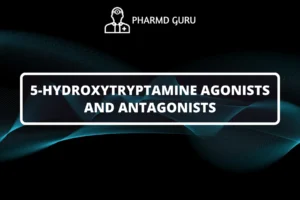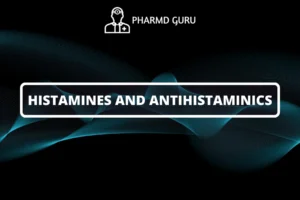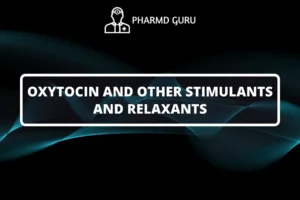Drug toxicity refers to the harmful effects that drugs can have on the body when used inappropriately, in excessive amounts, or for prolonged periods. Understanding the different types of drug toxicity, including acute, sub-acute, and chronic toxicity, is essential for healthcare professionals to ensure safe and effective medication use.
SCROLL DOWN TO THE BOTTOM OF THIS PAGE FOR ACTUAL NOTES.
TABLE OF CONTENTS:
- Introduction
- Acute Drug Toxicity
- Definition
- Causes
- Symptoms
- Treatment
- Sub-Acute Drug Toxicity
- Definition
- Causes
- Symptoms
- Treatment
- Chronic Drug Toxicity
- Definition
- Causes
- Symptoms
- Treatment
- Prevention of Drug Toxicity
Introduction
Drug toxicity occurs when drugs produce harmful effects on the body, leading to adverse reactions or toxicity. The severity and duration of drug toxicity depend on various factors, including the dose, duration of use, individual susceptibility, and the specific drug involved. Three main categories of drug toxicity include acute, sub-acute, and chronic toxicity.
Acute Drug Toxicity
Definition
Acute drug toxicity refers to the immediate or rapid onset of adverse effects shortly after drug administration or exposure. It is usually associated with a single high dose or accidental overdose of a medication.
Causes
Acute drug toxicity can occur due to several reasons, such as:
- Accidental or intentional overdose
- Drug-drug interactions
- Allergic reactions
- Adverse drug reactions
Symptoms
Symptoms of acute drug toxicity vary depending on the specific drug and individual response. Common symptoms may include:
- Nausea and vomiting
- Dizziness or confusion
- Respiratory distress
- Abdominal pain
- Seizures
- Cardiac abnormalities
Treatment
Treatment of acute drug toxicity involves:
- Immediate medical attention
- Supportive care, such as maintaining vital signs and addressing symptoms
- Administration of antidotes, if available
- Activated charcoal or gastric lavage to remove the drug from the body
- Monitoring and management of complications
Sub-Acute Drug Toxicity
Definition
Sub-acute drug toxicity refers to the adverse effects that occur within a few days to several weeks of drug exposure. It often arises from repeated or prolonged drug use, leading to cumulative toxic effects.
Causes
Sub-acute drug toxicity can result from:
- Continuous or excessive drug use
- Accumulation of drug or metabolites in the body
- Impaired drug clearance or metabolism
- Organ toxicity due to prolonged exposure
Symptoms
Symptoms of sub-acute drug toxicity may include:
- Fatigue and weakness
- Gastrointestinal disturbances
- Skin rash or irritation
- Changes in blood pressure or heart rate
- Organ-specific symptoms, such as liver or kidney dysfunction
Treatment
Treatment of sub-acute drug toxicity involves:
- Identification and discontinuation of the offending drug
- Supportive care to manage symptoms and organ dysfunction
- Monitoring of vital signs and organ function
- Specific interventions based on the drug and associated toxicity
Chronic Drug Toxicity
Definition
Chronic drug toxicity refers to the long-term harmful effects that occur after prolonged drug use or exposure. It may result from continuous low-dose exposure, accumulation of drug or metabolites, or organ damage over time.
Causes
Chronic drug toxicity can be caused by:
- Prolonged drug use
- High cumulative dose over time
- Slow drug clearance or metabolism
- Organ damage or dysfunction
Symptoms
Symptoms of chronic drug toxicity may include:
- Gradual onset of symptoms
- Fatigue and malaise
- Organ-specific symptoms, such as liver or kidney dysfunction
- Neurological abnormalities
- Impaired cognitive function
Treatment
Treatment of chronic drug toxicity involves:
- Identification and discontinuation of the causative drug
- Supportive care to manage symptoms and organ dysfunction
- Rehabilitation or therapy for long-term effects
- Monitoring of organ function and overall health
Prevention of Drug Toxicity
Preventing drug toxicity involves several strategies, including:
- Appropriate prescribing and dosage adjustments
- Patient education about medication use and potential adverse effects
- Regular monitoring of drug levels and organ function
- Avoidance of drug interactions
- Adherence to medication guidelines and recommendations
ACTUAL NOTES:




